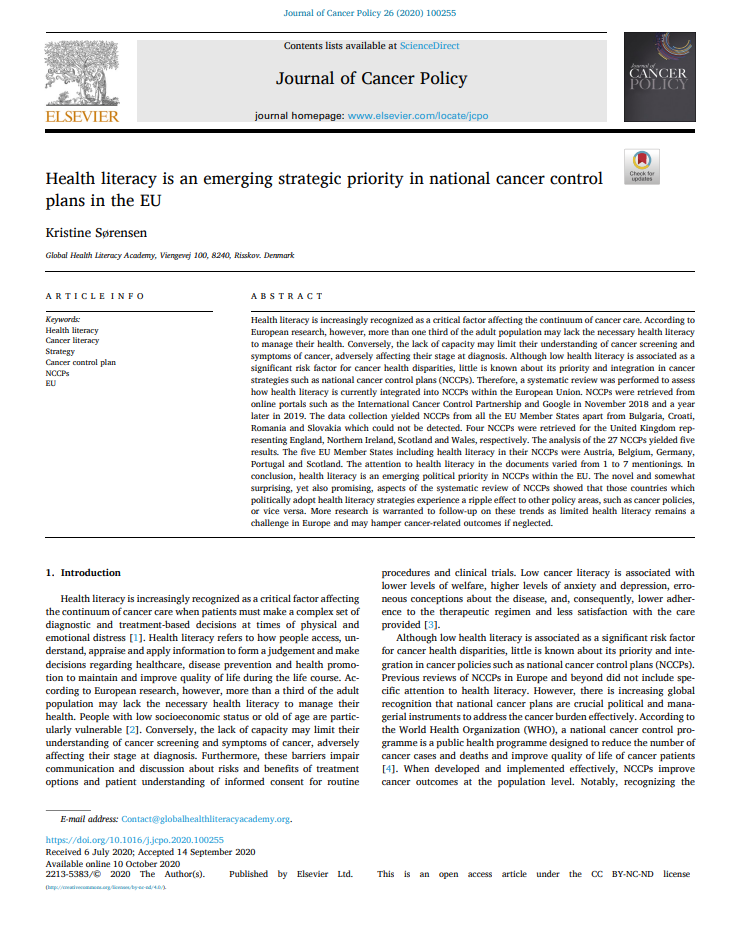Abstract
Health literacy is increasingly recognized as a critical factor affecting the continuum of cancer care. According to European research, however, more than one third of the adult population may lack the necessary health literacy to manage their health. Conversely, the lack of capacity may limit their understanding of cancer screening and symptoms of cancer, adversely affecting their stage at diagnosis.
Although low health literacy is associated as a significant risk factor for cancer health disparities, little is known about its priority and integration in cancer strategies such as national cancer control plans (NCCPs). Therefore, a systematic review was performed to assess how health literacy is currently integrated into NCCPs within the European Union. NCCPs were retrieved from online portals such as the International Cancer Control Partnership and Google in November 2018 and a year later in 2019.
The data collection yielded NCCPs from all the EU Member States apart from Bulgaria, Croati, Romania and Slovakia which could not be detected. Four NCCPs were retrieved for the United Kingdom representing England, Northern Ireland, Scotland and Wales, respectively. The analysis of the 27 NCCPs yielded five results.
The five EU Member States including health literacy in their NCCPs were Austria, Belgium, Germany, Portugal and Scotland. The attention to health literacy in the documents varied from 1-7 mentionings. In conclusion, health literacy is an emerging political priority in NCCPs within the EU.
The novel and somewhat surprising, yet also promising, aspects of the systematic review of NCCPs showed that those countries which politically adopt health literacy strategies experience a ripple effect to other policy areas, such as cancer policies, or vice versa. More research is warranted to follow-up on these trends as limited health literacy remains a challenge in Europe and may hamper cancer-related outcomes if neglected.
